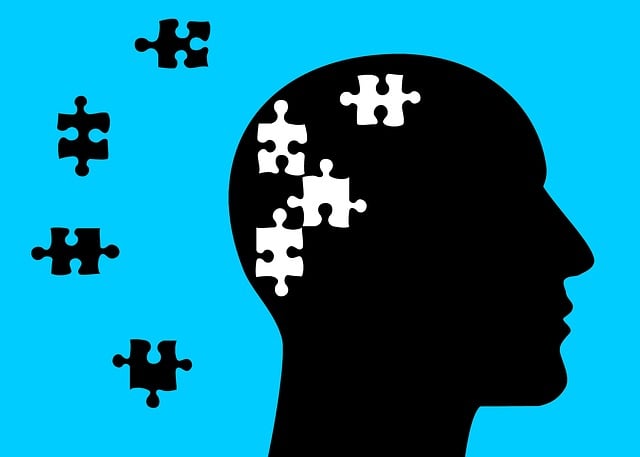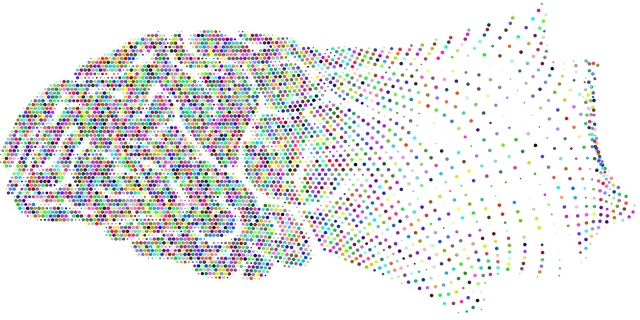In today's world, mental wellness coaching is vital for holistic well-being, especially with growing awareness of stress and anxiety. The demand for services like Aurora Major Life Transitions Therapy reflects a shift in recognizing mental health as integral to overall quality of life. This program supports individuals through significant changes using tailored techniques, fostering resilience and effective communication. Tailored coaching for adolescents and adults during major transitions is crucial, integrating evidence-based therapies like CBT and mindfulness. Success in such programs is measured holistically, considering client well-being improvements, while ethical considerations ensure a safe, supportive environment.
Mental wellness coaching programs are gaining traction as a vital support system for individuals navigating life’s challenges. This article explores the burgeoning field, focusing on Aurora Major Life Transitions Therapy as a cornerstone approach. We delve into designing tailored coaching programs for diverse life stages, integrating evidence-based therapies, and measuring success while emphasizing ethical considerations. By understanding mental wellness coaching, we can unlock its potential to guide folks through transformative journeys.
- Understanding Mental Wellness Coaching: A Growing Need
- Aurora Major Life Transitions Therapy: An Overview
- Designing Effective Coaching Programs for Different Life Stages
- Integrating Evidence-Based Therapies into Coaching Practice
- Measuring Success and Ethical Considerations in Mental Wellness Coaching
Understanding Mental Wellness Coaching: A Growing Need

In today’s fast-paced world, mental wellness coaching has emerged as a vital component in addressing the growing need for holistic well-being. With an increasing awareness of the impact of stress, anxiety, and other mental health issues on daily life, many individuals seek guidance to navigate their emotional journeys. Mental wellness coaches play a pivotal role in supporting folks through various life challenges, including major transitions such as career changes or personal losses, using techniques that go beyond traditional therapy. They help clients develop coping skills, enhance self-care practices, and foster resilience.
The demand for these services is rising, especially among those seeking alternative approaches to mental health education programs. By integrating evidence-based strategies with personalized support, coaches empower individuals to take charge of their emotional well-being. This growing trend reflects a broader shift towards recognizing the importance of mental wellness as an integral part of overall health and quality of life in communities like Aurora, where major life transitions can be both exciting and daunting.
Aurora Major Life Transitions Therapy: An Overview

Aurora Major Life Transitions Therapy offers a specialized approach to support individuals navigating significant life changes and challenges. This program recognizes that major transitions, such as career shifts, relationships ending or starting, and personal milestones, can be emotionally taxing and often lead to feelings of anxiety or depression if left unaddressed. The therapy focuses on empowering clients to build resilience through tailored strategies aimed at improving emotional well-being and enhancing coping mechanisms.
By integrating Trauma Support Services and Resilience Building techniques, the program equips participants with effective Communication Strategies to manage stress and adversity. Through a supportive environment, individuals learn to process their experiences, set meaningful goals, and develop healthier ways of interacting with themselves and others. Aurora Major Life Transitions Therapy is designed to be transformative, helping clients emerge with increased self-awareness, confidence, and the tools necessary to thrive during and after life’s inevitable shifts.
Designing Effective Coaching Programs for Different Life Stages

Designing coaching programs tailored to different life stages is essential for fostering mental wellness. For instance, a program catering to adolescents should focus on building resilience and coping strategies for school-related stress, while encouraging positive thinking and healthy habits. This could involve group therapy sessions, mindfulness workshops, and peer support networks.
As individuals navigate major life transitions like graduation or career shifts, coaching can be instrumental in managing the associated anxieties and depressive tendencies. The Aurora Major Life Transitions Therapy program, for example, offers personalized guidance to help clients adapt to these changes, promoting mental wellness through enhanced coping mechanisms, improved communication skills, and a renewed sense of purpose. Incorporating elements from popular Mental Wellness Podcast Series Production can also enrich these programs by providing accessible resources and community engagement.
Integrating Evidence-Based Therapies into Coaching Practice

Incorporating evidence-based therapies into coaching practice, such as those offered by Aurora Major Life Transitions Therapy, is a powerful strategy to enhance mental wellness coaching programs. These therapeutic approaches have been rigorously studied and proven effective in treating various mental health concerns, making them valuable tools for coaches. By integrating techniques like cognitive-behavioral therapy (CBT) or mindfulness practices, coaches can offer clients more comprehensive support during challenging life transitions. This approach allows for a deeper exploration of emotional well-being, enabling individuals to develop coping mechanisms and build resilience.
Empathy building strategies play a crucial role in this integration. Coaches can learn to recognize and validate their clients’ feelings, fostering an environment of trust and understanding. Such empathy helps individuals feel heard and supported, encouraging them to engage more openly in discussing their mental wellness journeys. Additionally, stress reduction methods derived from therapy can be incorporated into coaching sessions, providing practical tools for managing anxiety and promoting a sense of calm during major life changes.
Measuring Success and Ethical Considerations in Mental Wellness Coaching

Measuring success and ethical considerations are paramount in mental wellness coaching programs, especially when navigating complex Aurora Major Life Transitions Therapy scenarios. Coaches must adopt a holistic approach, evaluating progress beyond traditional metrics like session frequency or completion rates. This includes subjective reports from clients on improved well-being, enhanced coping strategies, and increased life satisfaction. Incorporating metrics related to mental health awareness, confidence boosting, and compassion cultivation practices allows for a nuanced understanding of coaching effectiveness.
Ethical considerations demand transparency in goal setting, informed consent, and confidentiality. Coaches must ensure clients fully comprehend the coaching process, its potential benefits and limitations, and any associated risks. Upholding ethical standards involves avoiding exploitation, maintaining professional boundaries, and prioritizing client autonomy. This commitment to ethics fosters a safe and supportive environment, enhancing the likelihood of positive outcomes in mental wellness coaching journeys.
Mental wellness coaching programs are evolving to meet the growing demand for accessible support. By integrating evidence-based practices, such as Aurora Major Life Transitions Therapy, coaches can provide effective guidance tailored to different life stages. As the field advances, ethical considerations and measurable success metrics ensure these programs enhance mental health outcomes while maintaining client confidentiality and well-being. This comprehensive approach to mental wellness coaching has the potential to revolutionize support systems, making them more inclusive and impactful in today’s digital age.














